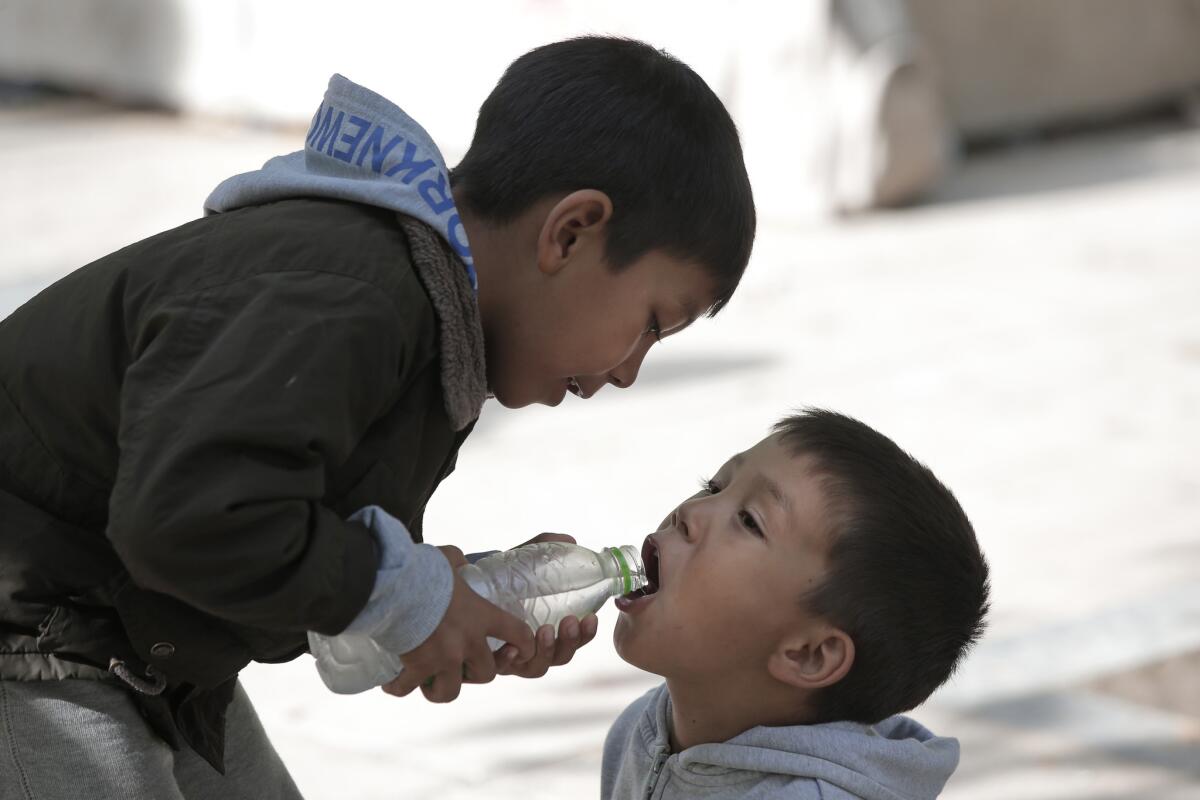Religion doesn’t make kids more generous or altruistic, study finds

In a new study, children who were from secular families were more likely to share than children from religious families.
Here’s a discovery that could make secular parents say hallelujah: Children who grow up in nonreligious homes are more generous and altruistic than children from observant families.
A series of experiments involving 1,170 kids from a variety of religious backgrounds found that the non-believers were more likely to share stickers with their classmates and less likely to endorse harsh punishments for people who pushed or bumped into others.
The results “contradict the common-sense and popular assumption that children from religious households are more altruistic and kind toward others,” according to a study published this week in the journal Current Biology.
Worldwide, about 5.8 billion people consider themselves religious, and religion is a primary way for cultures to express their ideas about proper moral behavior — especially behavior that involves self-sacrifice for the sake of others.
It’s often taken as an article of faith that religion promotes altruism. If that is true, then “children reared in religious families should show stronger altruistic behavior,” wrote the members of the research team, which was led by University of Chicago neuroscientist Jean Decety.
To see whether this was indeed the case, Decety and his colleagues recruited children from seven cities around the world: Chicago; Toronto; Amman, Jordan; Izmir and Istanbul in Turkey; Cape Town, South Africa; and Guangzhou, China. All of the kids were between 5 and 12 years old.
Among them, 24% were from Christian households, 43% were Muslim, 2.5% were Jewish, 1.6% were Buddhist, 0.4% were Hindu, 0.2% were agnostic and 0.5% were classified as “other.” In addition, 28% of the kids came from families described as “not religious.”
The researchers showed each child a collection of 30 stickers and told the kids they could keep the 10 they liked best. Then the researchers told their young subjects they wouldn’t have time to play the sticker game with every student in the school, so some kids wouldn’t get any.
The children responded by sharing some of the stickers with their classmates — and the kids from secular households shared more stickers than their religious counterparts. When the researchers examined the three biggest groups of kids, they found that the generosity scores for Christians and Muslims were essentially the same, and that the scores for nonreligious children were 23% to 28% higher.
The researchers also found that the more religious the family, the less altruistic the child. This pattern held up for all religions in the study.
The researchers also noted that the relationship between religiousness and altruism was more pronounced among the older kids (those between the ages of 8 and 12). That was notable, they wrote, because older children had more years of religious experience under their belts than younger children.
In another part of the experiment, the researchers showed the kids a series of scenarios involving bumping, pushing or other types of “interpersonal harm.” They they asked the kids to rate the meanness of the offenders.
Muslim kids judged the offenders most harshly, followed by Christian kids and then secular kids. Accordingly, the children from Muslim families endorsed harsher punishments than kids in the other two groups, who were essentially tied on this score, according to the study.
These results seem to fly in the face of the idea that religion is necessary to lead a moral life — a notion “so deeply embedded that individuals who are not religious can be considered morally suspect,” as the study authors put it.
The findings “call into question whether religion is vital for moral development,” the researchers concluded. They don’t seem to think so; separating religion from morality, they wrote, “will not reduce human kindness — in fact, it will do just the opposite.”
The study was funded by the John Templeton Foundation, which supports scientific research on spirituality and other “big questions.”
Follow me on Twitter @LATkarenkaplan and “like” Los Angeles Times Science & Health on Facebook.
ALSO:
A swallowed pill appears to deliver weight loss without gastric surgery
Black Americans are closing the life expectancy gap with whites, CDC says
Rx for America: Nearly 6 in 10 adults take prescription drugs, study says




